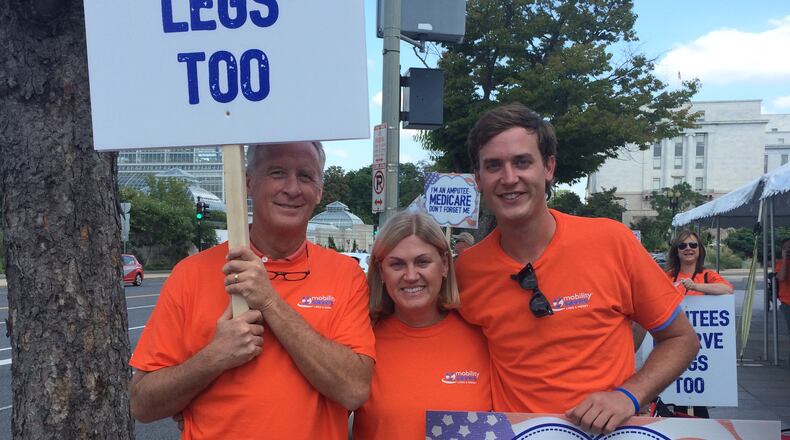Is Medicare trying to turn back the clock for people who have lost limbs?
Amputees from around the country, including Atlanta's Jordan Thomas, went to Washington on Wednesday to protest against a proposal that they say could make it harder for people to get the most advanced artificial limbs.
"If CMS goes through with this proposal, it will truly eviscerate the amputee population," said Thomas, 26, who lost both his legs in a boating accident when he was 16. "It will return us to a quality of care comparable to the 1970s. In total, approximately 1.5 million people will be impacted and there's no question that we'll receive inferior prosthetic care moving forward."
Credit: Carrie Teegardin
Credit: Carrie Teegardin
The Centers for Medicare & Medicaid Services, which oversees the Medicare program, said this week it is listening carefully to public concerns about the proposal.
“CMS believes that Medicare beneficiaries will continue to have access to lower-limb prosthetics that are appropriate, and the intent of this proposed local coverage determination is not meant to restrict any medically necessary prosthesis," CMS said in a statement to The Atlanta Journal-Constitution.
The proposal is still open for public comment. CMS said Wednesday that the "stakeholders’ input was vital to the process as the Medicare regional payment contractors finalize a new policy."
Thomas said he thinks the turnout in Washington on Wednesday made a huge difference because it put a face on the issue.
"Those that authored this proposal, bureaucrats operating in a vacuum with little understanding of the long-term consequences of their policy decisions, saw the hundreds of people that this proposal will hit the hardest," Thomas said. "We were there to give a voice to the tens of thousands of other amputees that were not heard."
While recovering from his accident, Thomas started a foundation to help children whose families cannot afford advanced prosthetics.
About the Author
Keep Reading
The Latest
Featured





